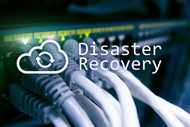Posted by Aventis Systems on Jan 12th 2026
When deciding between SSD vs HDD for your business’s data storage needs, it's important to understand the unique characteristics of each option. Both Solid-State Drives (SSDs) and Hard Disk Dri … read moreBlog
Posted by Aventis Systems on Jan 8th 2026
Many businesses try to stretch their equipment as long as possible, but recognizing the signs you need a new computer is important for productivity. Slow performance, hardware limitations, and softwa … read morePosted by Aventis Systems on Jan 4th 2026
If you’re asking “How much RAM do I need for office work?”, it helps to understand how memory affects daily tasks. RAM acts as short-term memory that helps programs run smoothly. If … read morePosted by Aventis Systems on Jan 1st 2026
To set up a reliable IT infrastructure, understanding the components of a server is essential. Servers are the backbone of modern businesses, handling everything from storing data to facilitating com … read morePosted by Aventis Systems on Nov 11th 2025
The digital engine of any growing business is its server infrastructure. Choosing the right hardware is a fundamental decision that affects performance, scalability, and long-term operating costs. A … read morePosted by Aventis Systems on Nov 11th 2025
Modern commerce operates on IT systems, and any disruption to this infrastructure can halt operations, erode customer confidence, and inflict financial damage. If a power outage, cyberattack, or natur … read more





